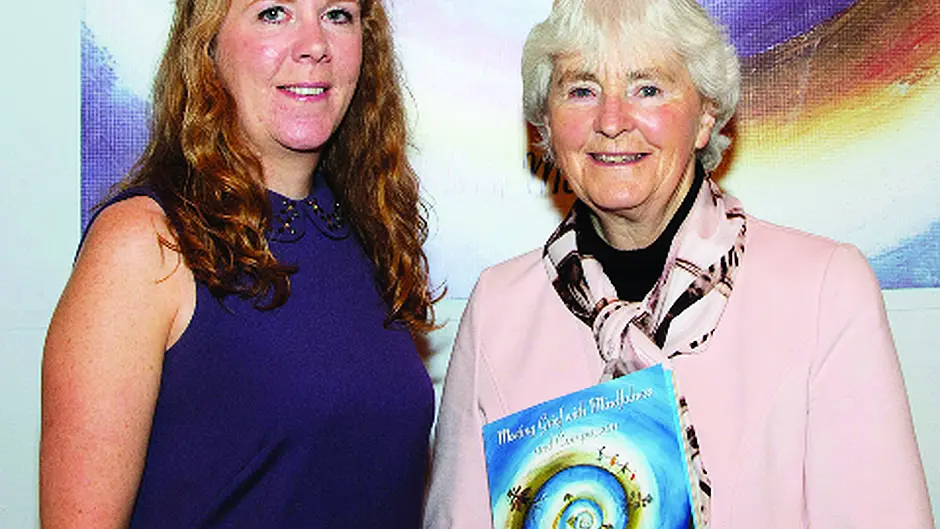Nollaig McSweeney never thought she would come back from the devastation of losing Isabelle, who was stillborn. But when she discovered she wasn’t alone in grieving for her baby, she found hope, she tells Jackie Keogh
After her daughter, Isabelle, was stillborn, Nollaig McSweeney’s whole world fell apart.
‘For a very long time I would not have seen any light,’ said Nollaig, who is originally from Rossmore in West Cork. ‘I didn’t think it was possible to survive such a tragedy but it was thanks to the wonderful support of family and friends, as well as the charity, A Little Lifetime Foundation, formerly the Irish Stillbirth and Neo-Natal Death Society.
‘Through the charity I learned that I was not alone in my grief. I would have encountered other bereaved parents and was surprised to find how many bereaved parents there are in the world. Through the charity I encountered Ron Smith Murphy who constantly encouraged me to write about my daughter’s short life and my life without her.
‘In doing this I managed to keep a connection with my daughter in a very healthy way; and I also uncovered a talent that I never knew I had, the ability to write.
‘As the charity’s 30th anniversary was approaching, Ron and I decided to try and produce something to mark the occasion, but also to assist the bereaved. The book “Meeting Grief with Mindfulness and Compassion” is the result of our efforts.
‘Initially, the book, for me, was very much about helping others through their grief but a short couple of weeks into writing I realised it wasn’t so much about helping others it was, first and foremost, about helping me to navigate my way through my grief.
‘The grief is overwhelming – the devastation is darkness – there are no words – it was not just the loss but that collision between birth and death – the birth of a child would be a joyous occasion – but when that child is born showing no signs of life there is only devastation.
‘In those initial few days, I was paralysed both mentally and physically – I couldn’t eat or sleep – I had no concept of time, I didn’t know night or day. Decision-making was impossible. I relied completely on people around me to help me with daily living, even eating.
‘I remember my sister commenting that I seemed to lack the ability to eat. She said it seemed as if I didn’t know how to chew. She said it was like watching someone learning to do everything for the first time.
‘I was aware of my surroundings but I wasn’t able to engage with them – i distinctly remember one day when my brother was talking to me and it was like watching a picture with no sound – I couldn’t not follow the conversation.
‘That intense very physical grief lasted two to three weeks. After that I became more able to take care of my self, and yes I did engage more with my environment, but I was still devastated beyond words.’
Nollaig, who works as a mental health nurse, said: ‘In my job I would have witnessed a lot of trauma in other people’s lives and I work predominately with suicidal individuals – and I suppose in my intense grief I could relate to the deep trauma I had seen in other people and the same level of indecision – not even being able to chose what clothes to wear. It’s what happens when you are that broken.
‘I started to come back to life a bit and decided to go abroad: I planned a trip to Thailand ten or twelve weeks after Isabelle died. That allowed me to step out of life because I felt that the world was moving too fast for me. Grief had slowed me down and I wanted to be in a place where life was naturally slower.
‘I was single and free to leave. I am sure some people thought it was a crazy thing to do, but I had spent a lot of time in Thailand so it felt like going home. That was in October 2010. I ended up staying for four and a half months and I think that is where a lot of my healing began. It gave me the opportunity to move at grief’s pace and not the pace of our fast moving world.’
Nollaig came back to Ireland in 2011 and returned to work in Dublin. However, after relocating to Cork she started writing the book in December 2011, as well as working, from time to time, as an agency nurse.
She finished the book in late 2012 but it took two and half years – and self-publication – before the book “Meeting Grief with Mindfulness and Compassion” was available for sale online at www.alittlelifetime.ie. It is also available at Kerr’s and Cullinane’s in Clonakilty, as well as O’Donovan’s bookshop in Skibbereen.
The Innishannon-based author, Alice Taylor, launched the book recently at St Mary’s Theatre in Rossmore. In fact, it was the community in Rossmore who made the book possible. Nollaig said: ‘It was the generosity of the local people through donations and attending fundraisers that paid for its publication.’
‘To them I am very grateful. Writing the book has allowed me to speak openly about my child in a way that is very comfortable for other people because talking about children who have died is not an easy subject for anybody.’









